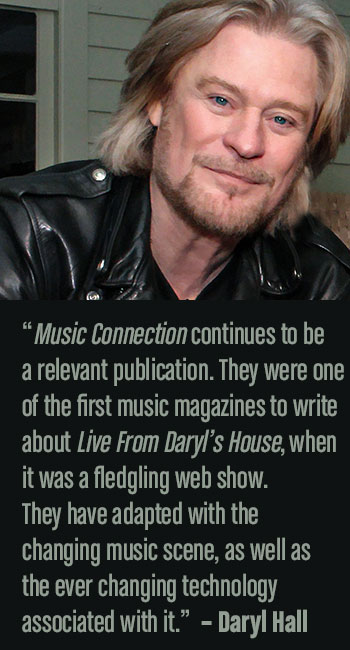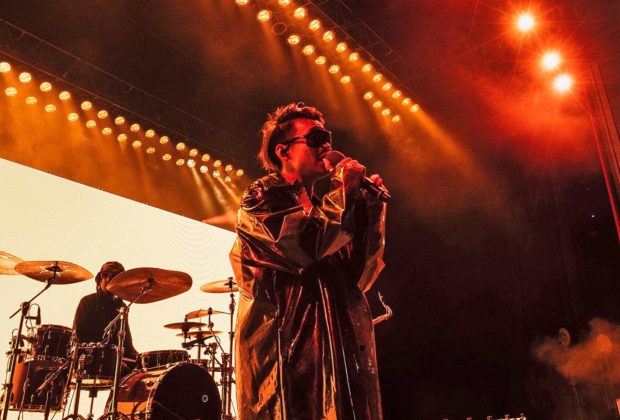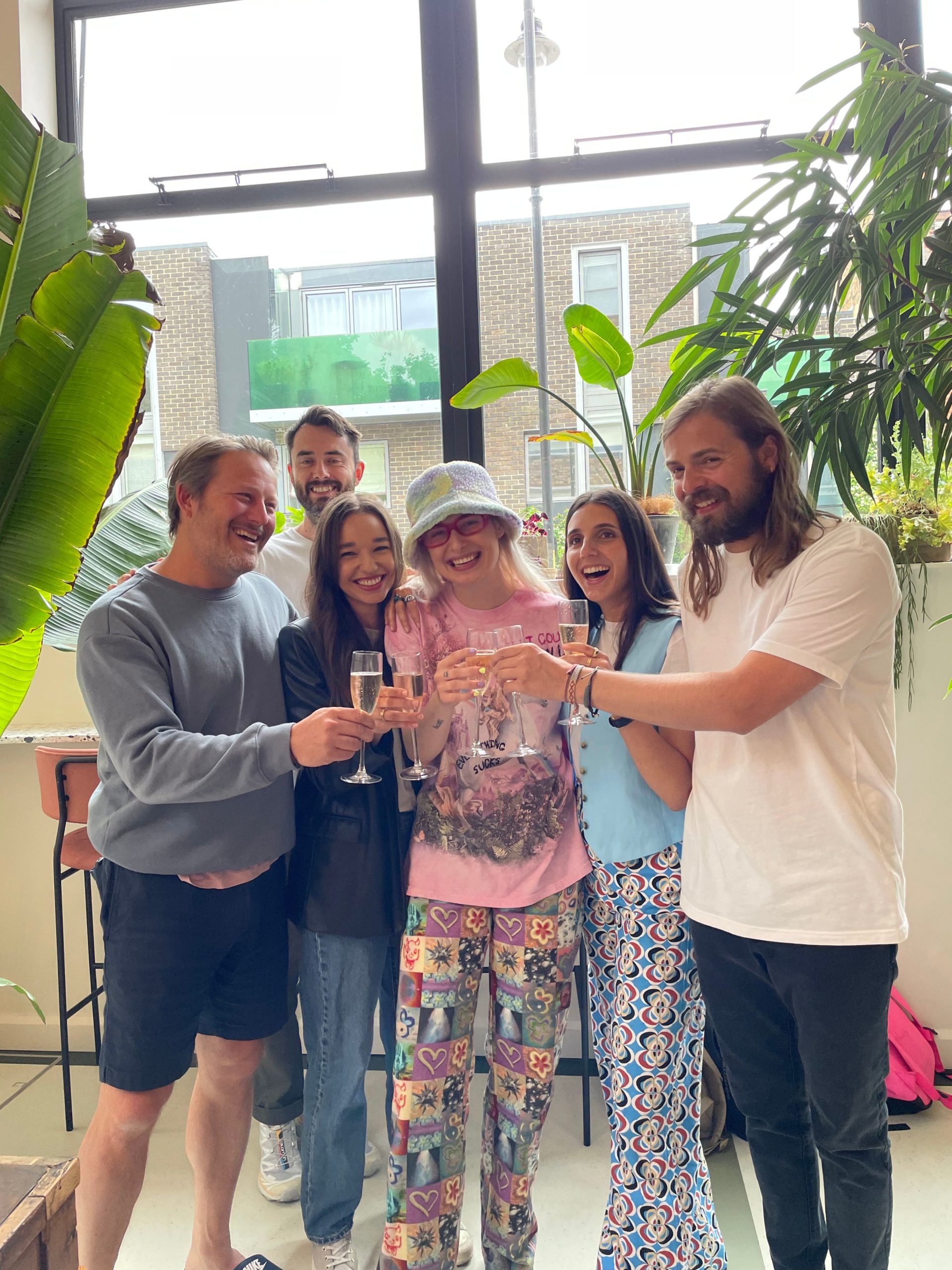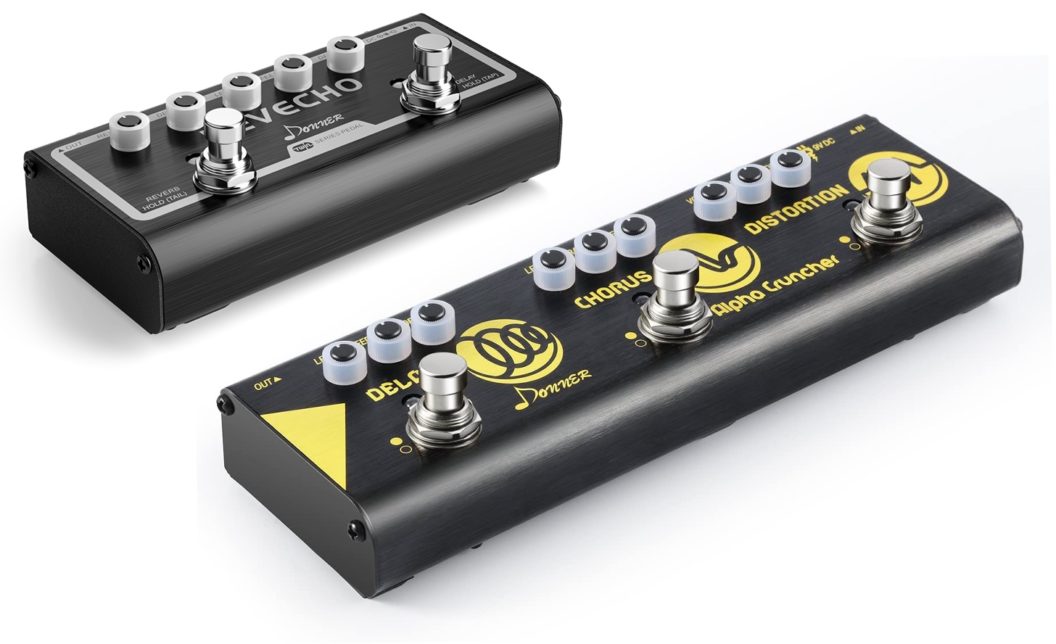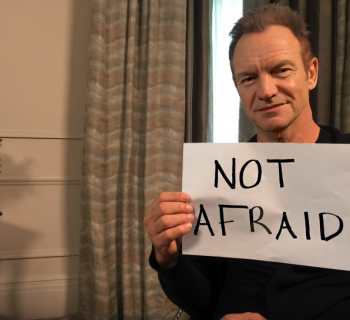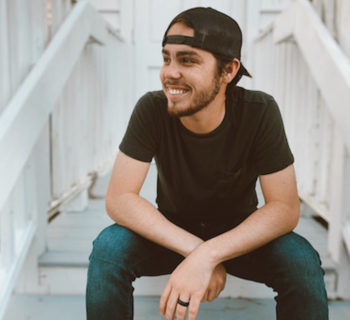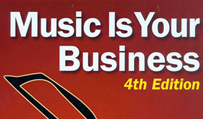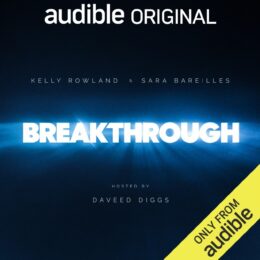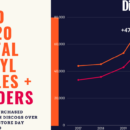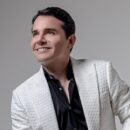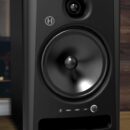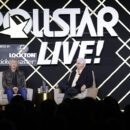It took eight years for San Francisco native Steven Zhu to launch his career as an electronic musician and become one of the most revered artists in the genre.
“The genre.” Ha. To even define electronic music anymore is like trying to summarize music itself. Electronic music is now so sprawling, wide-ranging—all-encompassing, even—that the term itself seems antiquated. There is a strong argument to be made that electronic music is more far-reaching and inclusive than rock music, but we’ll save that discussion for another time.
Instead, we’ll focus this one on Zhu—who, as an artist, goes by ZHU. (And that’s pronounced “Zoo,” for the record.)
As apparent from our recent conversation with ZHU, the music project is one of the most ambitious and industrious to emerge in recent memory. Perhaps the best example of this is the expansion of ZHU from a DJ into a project featuring an evolving cast of musicians. (Insider tip: do not refer to him as a DJ anymore.)
That evolution of the electronic-music project might, in and of itself, encapsulate the magnitude of ZHU and the ways he is almost single-handedly smashing barriers. To put it simply, if you envision a dude wearing headphones at a console when you hear the term “electronic music,” you’ve got some catching up to do.
We caught up with Steven Zhu, who is 33 years old, shortly after the release of his new Astralwerks EP, Musical Chairs Mixtape (Vol. 1). With Dreamland 2021 more than a year in the rearview mirror, our conversation revolved mostly around the expansion of his music project, how it feels to perform with partners instead of by himself—and what intertwines music with his heart and mind.
Gratefully, the artist who once refused to have his identity known, was remarkably candid in discussing all those topics—and much more.
Music Connection: What propels you most as an artist, particularly in the dance music realm? Is it the act of discovery? Do you subscribe to the belief that there are a finite number of songs that can be written?
ZHU: When you get down to it, what matters is capturing the essence of music at a certain point in time. ZHU also want to be kinda cerebral, but with dance music, you also gotta connect with the people. You gotta make them feel your music physically, as well. It can be challenging to convey.
MC: How do you manage to do that—as an electronic-music artist in particular? When you perform at massive festivals to a sea of people, and you’re coordinating so much with your equipment that you have your head down … it seems like a taller order for an electronic music artist to establish and maintain a connection with the crowd.
ZHU: Actually, that’s why I started incorporating a band in my set. And working on my vocals. When I’m performing live, certain songs feel more human to perform them with my voice. Others feel more robotic, more locked-in, so I perform those with decks.
MC: Is that what you find most gratifying while you’re onstage—looking up and seeing the crowd all in sync?
ZHU: Yes, I’m looking at the way people are moving, I think. I used to find it a lonely experience being onstage. It has made me a better performer in some ways, being able to perform with other people onstage with me. When I first started playing music, I played to empty rooms. That’s the worst feeling, when nobody wants to see you.
It’s hard to explain, but there’s a feeling I get when I see a look on people’s faces that tells me the experience has taken them over. I can feel it physically and emotionally, in an immense way. Some people might be rolling their eyes, some people might be smiling, you know what I mean?
MC: Yes.
ZHU: The experience clearly appears jawdropping for some people in the audience. Some are in their own dance zone. But when I see people reach that point, that’s when I feel a lot of joy.
MC: It seems like playing with a band is such a major shift in ZHU that it can almost be considered a different project now entirely. Given your history with performing solo, how often do you run into the challenge of getting on the same page with your bandmates?
ZHU: It’s always difficult with musicians because they, you know, always wanna play. And sometimes the most beautiful thing in a song is when there’s silence and space. But the guys that play with me really understand and appreciate when live music makes an impact. Our relationship has progressed.
MC: Can you point to a song or two that you’ve noticed fans react to differently at your concerts now that you’ve incorporated a band?
ZHU: “Risky Business” [a 2020 song Zhu created with Mathame, brothers Amedeo and Matteo Giovanelli]. In our live show, at the end of the song, there’s a moment where it’s just us, the band and me, playing. It feels almost like an arena-rock moment versus a dance or techno track.
I grew up playing various instruments, and I think there’s something primal about different sounds coming together and fitting together. You can’t necessarily achieve that with a digital track. Performing it live as a group adds another layer of humanness to it. It a very dynamic part of the show.
MC: Given how you keep your shows dynamic, are you more inclined to vary your setlist or is it baked in from the start of the tour?
ZHU: Currently, I know the first couple of songs, the last couple of songs—but I don’t know any of the songs that I might play in the middle.
Certain types of shows, you want to make sure that everything is running smoothly. But, man, I like the mistakes. The moment when it’s rough and it’s a jam, and it’s working its way through interesting kinds of spaces that are challenging for the audience too.
I mean, I have hits, so we could run through them if I want us to—but that’s not the point of our live performance. That’s not the point of why someone wants to come on the concert journey with me, in a sense.
MC: So, what is the reason, in your mind? Is it so the concertgoer goes on a personal or emotional journey?
ZHU: I think people, when they come to my show, they want to be entranced. They wanna slowly be drawn into a wavelength that they’ve never been on. A trance. And that feels great. And then, when everyone’s on the same wavelength, the performance really starts.
Some shows take work getting everybody to be really in tune with you. Not everybody is always focusing on you a lot of times, right?
MC: Oh, I’m sure. Especially at festivals, I’d imagine.
ZHU: Oh yeah. At festivals, people are just coming to check you out. They might not even know what to expect—so they need to be roped in.
MC: And how do you do that? What’s your hook?
ZHU: Well, that’s why having some flexibility in your setlist is important. Sometimes, even when you’re certain that a song is going to work, it might not be the right moment to play it. That’s when you have to play the role of a DJ more. Jam bands can really swap things around. But it’s a bit more of a challenge for me, as a DJ who also has a band.
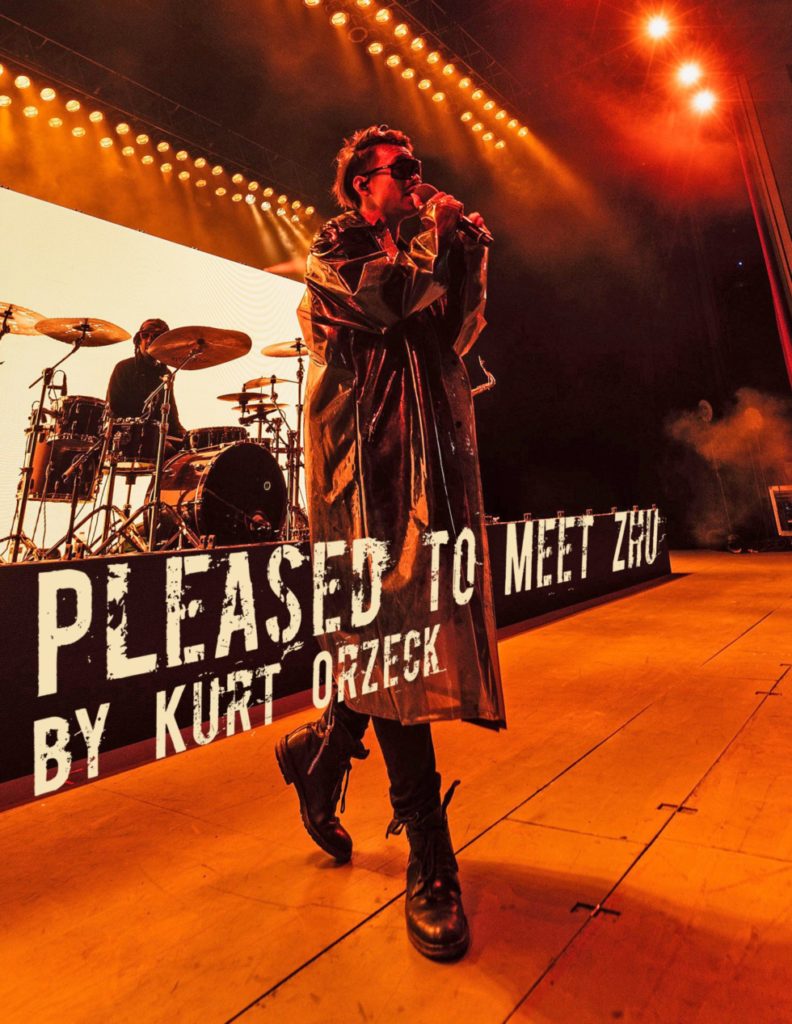
MC: Can you call to mind any shows where the outcome turned out to be way different than you thought it might be beyond those three established songs you brought into the set?
ZHU: Oh, man. Some nights it may take six songs to get to the place where I really wanna be. But I believe that I will always get there.
MC: How do you feel about encores?
ZHU: I might do multiple encores or I might do zero. That’s the beauty of feeling out a live show. Some audiences deserve more performance; and for others, they’ve had a taste that’s just right, and I don’t wanna stay any longer.
MC: So, the element of surprise is really a key part of your live performance now.
ZHU: It can be. At Lollapalooza [on July 28 in Chicago], at the end of the show, and I played a couple tracks in the audience. I thought that was very cool and different. There was so much energy.
When I’m on the stage, I’m like 25, 30 feet away. But I didn’t feel any distance when I went down there into the barricades. The energy was substantially different. It felt more alive.
MC: That must have been quite reinvigorating.
ZHU: Yeah, it gave me a chance to look at everyone who was down there. To take it all in. It all felt more real.
MC: That’s fascinating. Can it be hard to crack into the authenticity of the live performance when you’re behind the decks and all the trappings of the stage?
ZHU: Well, nowadays, everybody’s got LED screens, lights … everybody’s kind of larger than life. But going into the crowd [like I did] provided sort of a moment of verification for people to experience.
MC: Were you surprised to get invited to play Lollapalooza?
ZHU: Yeah. I mean, electronic music is now a very large lifestyle genre that, if you wanna have kids there partying and having a good time, you gotta book electronic acts. The culture’s alive and well, and growing more now in America.
MC: Was that your biggest crowd to date?
ZHU: That, Coachella and EDC [Electric Daisy Carnival in Las Vegas].
MC: Did you run into many friends of yours there, backstage or otherwise?
ZHU: I played on the first day. Unfortunately, I didn’t get to see Metallica. I haven’t seen them.
MC: What else do your personal musical tastes encompass?
ZHU: I get into different phases. Sometimes I’m super-deep into electronic music and then other times I’m into some rock or hip-hop. I’m always going to take a peek and try to understand what a different kind of music is. Why a certain artist or style is as big as it is. There’s so much music out there.
MC: It sounds like you take almost an anthropological approach to getting exposed to music.
ZHU: Especially with streaming, it’s to trace the lineage of a sample. If you’re into Greta Van Fleet, maybe you’ll go back to Led Zeppelin.
MC: What are you satisfied about with Musical Chairs Mixtape (Vol. 1)?
ZHU: I tried to make it like a cassette mixtape, and we managed to clock it at like 29 minutes and 52 seconds, so that was pretty close.
MC: Clearly there’s an appreciation for cassettes now, with all the cottage label releases. But as an electronic musician, do you find that the sound quality is decent enough to justify the resurgence in the format’s popularity?
ZHU: I mean, I think ‘90s hip-hop on a boombox sounds fantastic. It bumps. And I might listen to Radiohead’s In Rainbows on a Walkman. Maybe on a train ride.
MC: How would you describe or articulate your favorite production or sound qualities to someone who might not be an audiophile?
ZHU: Hmm. I guess if you’re talking to someone who isn’t fully tech-savvy, you’d probably want to explain what a “lush” sound quality is. I’d say that good drums have a “smack.”
MC: Do you start writing a song by laying down the drum tracks first?
ZHU: If I want to start a groove? Yeah, absolutely. I started as a beat-maker before I started writing songs on keys and guitars. So, my innate nature is to work on the drums and the bass line.
But, lately, I’ve been challenging myself to write differently. To write songs first, and then to go back and adapt [the individual parts]. When you start with drums, when you’re making beats, like you’re writing rhythm. Writing on keys, you’re writing mainly melodies.
MC: Are you heavily involved with both mixing and mastering, or do you dish off those duties at some point?
ZHU: I mix my own stuff. I don’t master it, but like to hear the process. It keeps my ear fresh.
MC: What sound excites you most right now? What’s the one that you see the most promise in, perhaps?
ZHU: Sounds that are heavily distorted and crunched. A 10-year-old reference would be Justice. I’m into heavy sounds that are still clean and not sloppy. They have more snare and rhythm.
MC: Does that crunchy sound lend a more naturalistic aesthetic?
ZHU: I think it’s more of an attitude. When you’re distorting things, you’re destroying parts of it. So, it brings a bit of recklessness to the production.
MC: What do you have planned for your Red Rocks shows in November?
ZHU: I’m designing the stage right now. It’ll be a bit more interactive. I’m planning to incorporate some ‘90s nostalgia. [Ed. note: ZHU has incorporated Nirvana’s “Smells Like Teen Spirit” into some recent setlists.]
MC: Given how visual an artist you are, does that explain why you launched a fashion line?
ZHU: Fashion has always pulled from club culture and electronic music, but there hasn’t been any major fashion show that’s focused heavily on a line by an electronic artist. I’m hoping that the fashion industry will kind of, like, connect with the culture a bit more. They’ve definitely been referencing electronic music in the ‘80s, ‘90s and even 2000s, with rave culture.
MC: Do you find any challenge in preserving your artistic integrity from your business ambitions? Or is that not really an argument anymore, because of how technology has evolved?
ZHU: I am an entrepreneur. The ultimate dream is that you can disconnect the two, but the reality is we live in 2022.
MC: What’s the most memorable compliment you’ve ever received as an artist?
ZHU: That’s a pretty challenging one. Some people have written me saying, “Your music saved my life.” I’m still trying to wrap my head around the importance of that.
Contact [email protected]
QUICK FACTS
• ZHU’s Nov.11 and 12 gigs at Red Rocks Amphitheatre will not be the artist’s first at one of the most beloved music venues in the U.S. In fact, ZHU have performed there every year since selling out an eye-popping six shows at Red Rocks in 2020.
• ZHU blew up in 2014, beginning the year with an Outkast remix medley on Soundcloud that wasn’t even originally attributed to the project.
• Also in 2014, ZHU struck a deal with Columbia Records and played a career-turning show at HARD Day of the Day that winter.
• While Steven Zhu grew up in San Francisco, he now calls Los Angeles home.
• Yes, that is Steven Zhu singing on his songs. And using the auto-tune as well.
• By Feb. 2015, Steven Zhu had only given three interviews.
• Even though Steven Zhu is no longer anonymous, good luck trying to spot him in public. He almost always wears black sunglasses and an unassuming leather jacket and white tee.
